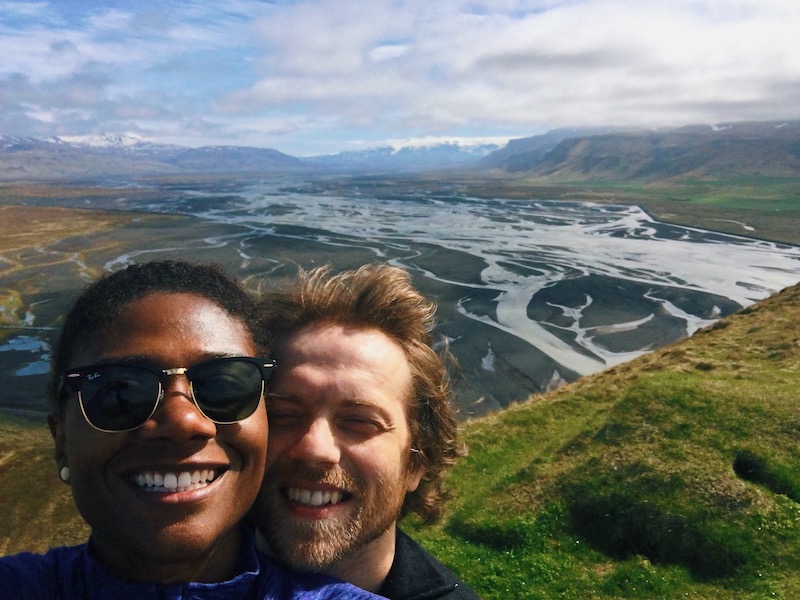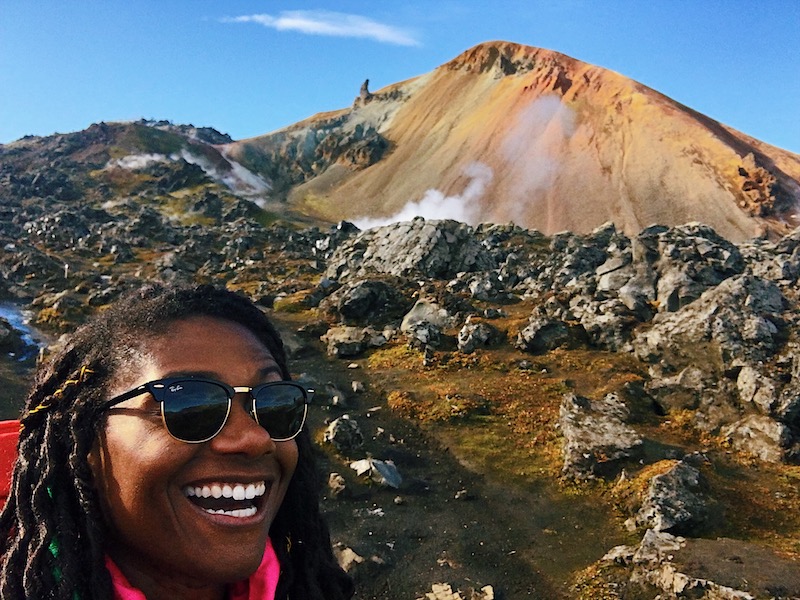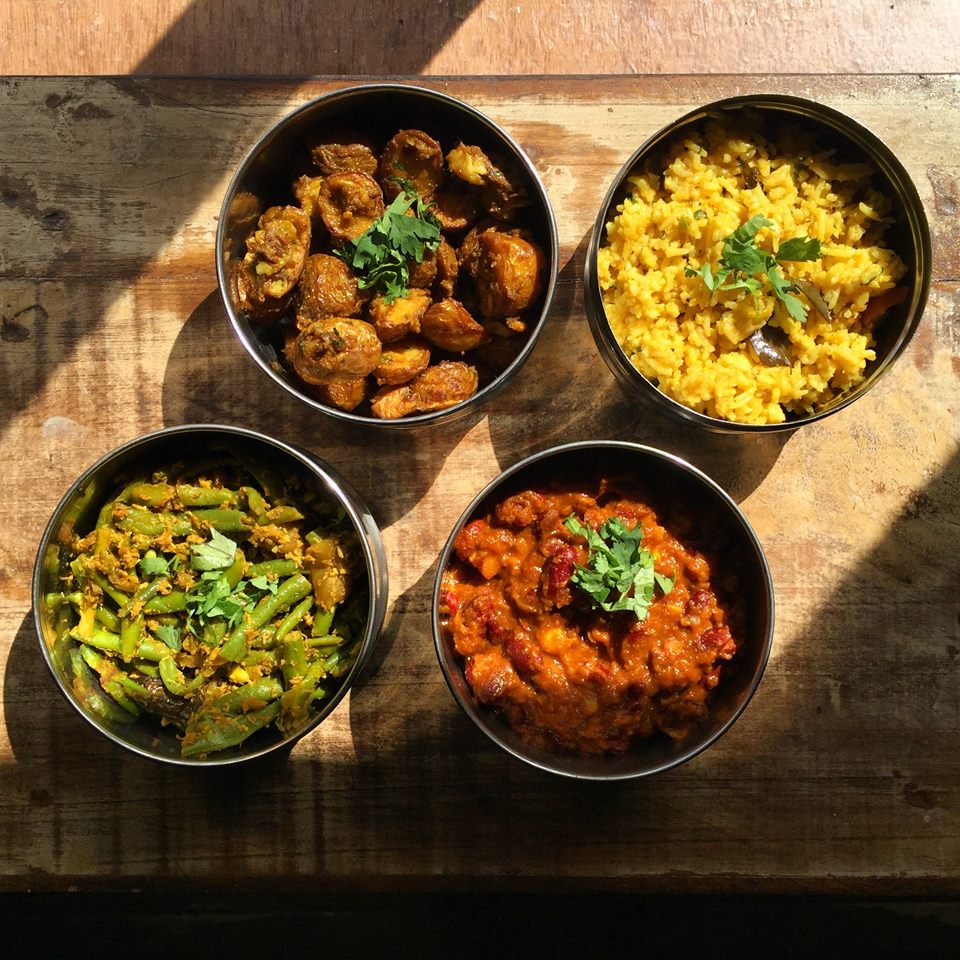

This week is a bit different than my normal episodes because I am going to share why I moved to Iceland. I get this question a lot, mainly because I was born and raised in NYC. People find it very difficult to understand why I would move to such a small country that averages relatively chilly temperatures and has a population of about 350,000 people. After sharing Ingólfur Arnarson’s story, the man who founded Reykjavík, I felt compelled to share my own. So, let’s just jump right into it.
Meeting Gunnar 12 Years Ago
I won’t go into all the details about how Gunnar and I’s relationship evolved because I have a video coming out on YouTube about it that will explain everything. For now, just know that we met through a mutual friend, Orri, who is Icelandic.
That was about twelve years ago but we didn’t becoming a couple until about five and a half years ago. We were in a long distance relationship for 3 years and the first time we lived together is when I moved to Iceland in 2016.

If someone had asked me if I would consider moving to Iceland before I started dating Gunnar, I would have flat out said no. I didn’t have anything against Iceland, but I just didn’t know anything about the place. I assumed that it would be more of a hassle to live there than it was worth. It’s funny how love has the ability to change your mind.
Adjusting to Life in Iceland
I started working the very next day after I arrived in Iceland. Because of that, I didn’t have a lot of time to think about my feelings regarding living in another country. I was so excited about my job opportunity and I wanted to do well so I mainly focused on that.
Funny enough, one of the hardest adjustments for me in the beginning was learning to live with another person. I lived on my own in a studio apartment in NYC for about 3 years before moving in with Gunnar in Iceland.
Of course, all of the cultural differences, such as the language and traditions were things I needed to adjust to. Thankfully, I had learned a lot about them during my visits to the country before I moved. Living here is so much different than visiting, but I experienced a lot less culture shock when I finally moved.

I do have to mention that I feel like marrying into an Icelandic family has given me an advantage when it comes to coping with living here. Many foreigners that move to Iceland but do not have ties an Icelandic family can feel quite lonely or left out. Icelandic people can be closed off when it comes to celebrating the holidays and other activities. They are very family orientated and most of the time their celebrations are just family members and very close friends of the family that are also Icelandic. Being included in the various activities made me feel like a part of the family immediately. That made living here an even more enjoyable experience.
Learning Icelandic
While I do understand a lot of Icelandic, I am continuously learning and working on my conversational skills. It is challenging, but it is also a lot of fun. Thankfully, there are a decent amount of resources online that are available. If you are interested in learning the language, here are some free resources that you can check out. I use a tutor at the moment, who is awesome. I highly recommend you considering to use a tutor or take classes if you want to learn the language in a systematic way.
Living in Iceland As a Person of Color
As many of you know, Iceland is predominantly made up of white people. No surprise there! However, some of you might not know that I am a Black woman. I am only mentioning this because a part of adjusting to life in Iceland for me has to deal with looking different than almost everyone else that lives here. To shine light on what it is like to live as a Black person in Iceland, I created a YouTube video with my friend Tabitha about the topic. Below is the video, if you would like to check it out.
To my surprise and relief, this video has been well received in Iceland. Many Icelandic and non Icelandic people have thanked us for sharing our experiences. I have also been featured in the Icelandic news, including visir.is, The Reykjavík Grapevine and Iceland Review. Also, I recently wrote an article that was published.
Before moving I was afraid that I might be discriminated against because of the color of my skin. Thankfully, I have not felt that way since I started to live here. Iceland is not a perfect place. However, it has been a pleasant surprise that most people here want to learn more about my experience. They have also has wanted to share their own.
Being a Vegan in Iceland
When I met Gunnar five and half years ago, I was not fully a plant based eater or vegan. I was dabbling in it but hadn’t fully committed yet. I am lactose intolerant so giving up dairy products has never been an issue for me. My body wasn’t much of a fan of meat, so I had started to cut back on that. By our second relationship anniversary, I was fully a plant based eater. I was somewhat concerned about how I would be able to live in Iceland as a vegan because meat and dairy are a big part of the diet. However, many visits to the country helped to ease my concerns.

The vegan society in Iceland has been growing at a rapid rate. Veganuary, which is when a person takes the challenge of being vegan for the month of January, has been quite successful in Iceland. Not everyone that has participated has remained vegan throughout the year, but it has helped to create more food choices at restaurants and supermarkets. More people are eating more vegetables and that is amazing.
While there are less fresh produce options here than in other places, there are certainly enough for people who are strictly vegans. Also, there are a lot of fake meats and some restaurants that are exclusively vegan.
Whether you are a visitor or a resident here, you won’t have an issue finding vegan food to eat and/or cook.
Adjusting to the Weather in Iceland
I thought I was prepared for how much the weather can change and affect you here, but I was wrong. Icelandic weather is a beast. The wind storms can be hurricane strength and it rains quite a lot.
I had to buy a lot of waterproof gear. I also had to adjust to the fact that the wind might be howling or the rain might beating up against the window or roof when I am trying to sleep. Additionally, winters in Iceland usually mean icy sidewalks and roads. I am still afraid of falling on ice here and I do my best to take my time when walking on paths that might be slippery.

The long dark nights of winter and the long bright days of summer are bizarre extremes that took awhile for my brain to come to terms with. I used to wear a face mask in the summer because I couldn’t sleep if I saw any light coming through. During winter, I used a daylight lamp to help me feel more awake in the morning. The sun wouldn’t provide brightness in the sky until 10 or 11 am. It took about 2 years before I had developed effective coping mechanisms for dealing with the seasons in Iceland.
Connecting with Nature
As I have mentioned in previous episodes, having a routine has helped me a lot, especially with winter. However, the most effective method I have found that made adjusting to living in Iceland much easier is embracing and respecting the power of its nature. In Iceland, I have walked, hiked, climbed, travelled by car, boat. I am always in awe of how beautiful and fragile the nature is here. I didn’t connect with nature in this way when I lived in NYC. Being able to do it in Iceland has changed my life for the better.
Random fact of the Episode
As of 2018, there are about of 350,000 people living in Iceland and about 7% of the population are foreigners. The largest population of foreigners here are Polish, who make up about 3.14% of the population
Icelandic Word of the Episode
Útlendingur – foreigner
Let’s be social! Here is where you can connect with me on social media platforms:
I hope you enjoyed learning about my experience moving to and adjusting to life in Iceland. I release a new podcast episode every week. Make sure you are subscribed to the All Things Iceland podcast so you don’t miss new episodes. If the platform you are listening to this podcast on allows you to leave a review, please do so, if you haven’t already.
Þakka þér kærlega fyrir að hlusta (og að lesa) og sjáumst fljótlega
Thank you kindly for listening (and reading) and see you soon!
Hello Jewells,
My name is Alex and I’ve been interested in moving to Iceland from the US. I wanted to know how the transition went and if it was a lengthy process?
Thanks,
Alex
Hi Alex,
Thanks for the question. The transition differs depending on your circumstance. I am married to an Icelander, which makes it easier for me. Here is a video I did about moving to Iceland. Hopefully, this helps you a bit.
https://www.youtube.com/watch?v=EJJZdsXsFus
Hi Jewells,
I’m also interested in moving to Iceland. Have you come across any Meetups or functions that primarily focus on Black people or people of color making the transition over? It would be nice to establish a community before fully committing.
Much appreciation for the time,
Sierra
Hi Sierra,
Thanks for the comment and question. There is a “Black People in Iceland” group. I don’t think there are a lot of meetups but I meet up with women of color here. There is a not an official meet up but many of us just coordinate events and let others we know about it.
I am thankful to have found your story! I’m interested in visiting- also from NYC and I’m excited to not only see a native New Yorker, whose a woman but a woman of color! Happy you found love- we all deserve good love! Any suggestions on places to stay? What’s the best time to see the Northern Lights?
So glad to hear that. The best time to see the Northern Lights is between late October and March. December through February is when most people visit because those are the darkest days. Regarding where to stay, I normally like to stay in bed and breakfasts places or AirBnb. It’s good to get out of Reykjavík and stay in places around the country, if you plan on going all the way around.